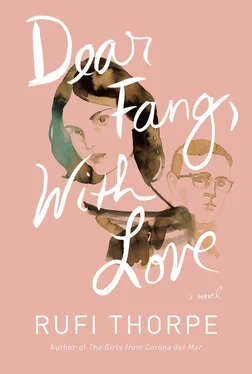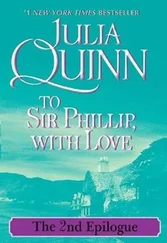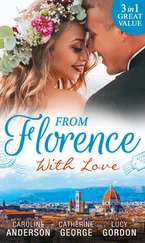“No,” I said, trying to get him to understand. “But this is brilliant. You must keep working on this.”
I never knew if he did or didn’t. Whether he was pretending not to care to draw compliments out of me, to underplay his achievement the way kids in high school will pretend not to have studied when they ace a test, or whether he really could just toss off such brilliance as if it didn’t matter.
Gradually, though, I began to feel as if I were behind a partition of glass and Robert could not hear anything I was saying. He never took an interest in me. He rarely asked questions about my life except in the most cursory way. He was always polite about it, but it was clear that I wasn’t very interesting to him. He was the interesting one. That was where he was most comfortable: being the raconteur, being the genius, being the star. For Christmas, he gave me a taped recording of himself playing Iago in Othello.
He also began to be more and more careless about saying nasty things about my mother. He assumed, because I did not say otherwise, that I was his confidant, that we were bonded together against her. “And I think we both know Rose is a little cuckoo,” he would say. Or, “And my hat is off to you for turning out so well, being able to handle her.” Most of the time it didn’t bother me. I thought of the woman he had known as being entirely separate from my actual mother. He simply didn’t know what he was talking about. But I found it annoying, presumptuous. I was beginning to see that he was arrogant. A bit of an ass. Quick to assume the worst in other people.
Once, I accidentally slipped and called him Dad. I was just a young guy, twenty-five, wanting to connect with my father, yet I can still feel ashamed when I think of it, that burning, searing shame associated with early childhood. I remember once playing dogs when I was four and licking the leg of a babysitter, the way she turned on me, suddenly serious, and told me no. There had been a warning in her voice that scared me: I had crossed a line I hadn’t even known existed. I felt that way when I accidentally called Robert Dad, that confusion over what I had done that was wrong, that hot fumbling flush, but there I was, a grown man. “Hey now,” he had said. “We don’t know that for sure. We ought to have a DNA test done.”
“Why?” I asked.
“I’ve never been entirely sure I was the father,” he said. I noticed he said “the father” and not “your father.”
“But who else would be my father?” I asked.
“Who knows?” he said. I realized he was implying my mother had been sleeping around. Given the fact that I had been conceived during a one-night stand at a party, I could see that it was a reasonable inference that my mother might be sleeping with other men. In fact, she had never told me she wasn’t. But I was incensed anyway. Didn’t he see himself in me? Wasn’t it obvious in the way we crossed our legs, the way we laughed at the same time, the way we both loved The Tempest ? And if he truly thought that I wasn’t his son, then why on earth was he having coffee with me all the time?
“So you really don’t think I’m your son,” I pressed.
“I have no way of knowing,” he said. And then, as though to make sure I understood he was being perfectly reasonable: “I’m not ruling it out by any means. I’m not saying you aren’t my son.”
I just stared at him. I was like Schrödinger’s cat then, half alive and half dead. I was nothing but a thought experiment, someone who might be but was also possibly not his son. I wasn’t real to him at all.
I didn’t exactly cut off our friendship, but things became awkward after that. I felt hurt when he forgot my birthday, but then I realized he might not even know when it was. He stopped calling, I stopped calling. By the time my mother came back the next summer, the whole thing was over. I never told her. I didn’t want her to know. The nasty things he’d said about her and the way I had listened, not objecting. The way he had failed to notice me or see me or claim me. The way I had been so bitterly disappointed. I felt foolish and exposed.
After that, I scoured myself for any possible influence from him. In part because I looked so much like my mother on the outside, I suspected myself of being more like my father on the inside, and I was absolutely sure that I was genetically destined to become a blind, arrogant, hurtful asshole. It was part of why I second-guessed everything I did, everything I wanted. The part of me that burned, that thought of Grandma Sylvia in the gas chamber, that quivered when I read Virginia Woolf was the same as the part of him that painted pictures of rabbits dissolving into air, wrote novels about boys who could remember being born, played Iago so cunningly I had become nauseated watching him and had to stop the tape halfway. What a shitty Christmas present.
What an embarrassment, to be that man’s son.
Date: 7/17/2014 11:34 PM
From: Vera.Abramov@gmail.com
To: FangBoy76@hotmail.com
Subject: Marginalia
Dear Fang,
I have been contacted by Great-grandmother Sylvia’s ghost. At first, I didn’t know that’s what was happening, but now I feel almost certain. There have been thoughts, insights really, that I know are beyond my own capability, and I think they are her consciousness working through mine, just as we have been discussing.
Tonight she made a glass fall right off the counter in our apartment.
Maybe it is a coincidence, or maybe not. I have no explanation for how mental energy could affect physical matter, and at the same time, I have clear evidence that it does: How is it different for me to think of raising my arm and then do it? Aren’t I using my mental energy to create a chemical cascade that results in the movement of physical matter? I have no idea if there are other methods of doing this besides brains and bodies, but I don’t think the idea is totally whackadoodle.
Also, almost every single culture has a mythology about ghosts. Where there is smoke, there is fire, no?
Anyway, I have a lot of reading to do to try to make sense of things. Darius loaned me a book of poetry and some guy named Daniel gave me a book about Tesla and also told me the very interesting and very tragic life story of Alan Turing. It’s all connected. Especially to what you were discussing regarding the Woolf. I will try to write it out cohesively and then send to you, but in the meantime just do some Wikipediaing of those names: Nikola Tesla, Alan Turing, and oh, Hedy Lamarr. I think she is also connected, and of course Woolf, too. Each of their lives contains an echo of a single truth.
I got an interesting image the other day. I pictured a giant ice wall with people’s heads frozen in it. I walked up to it and it was frosty, and I wiped away the frost, and I could see all these heads just frozen in it, their faces contorted, and I kept wondering what it was. Some kind of astral object? A metaphor? What is an ice wall full of heads?
Also, I’ve been thinking of starting a Tumblr that is just pictures of whales photoshopped to be wearing sunglasses. I was even thinking there could be music videos to go with it. Wouldn’t that be funny? If I do go to college, what do you think I should major in? I’ve been thinking maybe biology!
With love,
From Vilnius,
Your ghostbuster,
V
THE MOMENT I LAID EYES on Herkus’s mother, Grandma Sylvia’s other daughter, I was sure the SS officer was staring right out at me. She had wide, Teutonic, milky-blue eyes, white hair as thin as floss that she wore with bangs in front, the rest pulled into a bun. Her name was Agata. “Yes,” Herkus said, when he was introducing her. “Sylvia named her after her sister, the one who died in Stutthof.” I took Agata’s soft, pale hand. So now I knew the name, the name of the girl who had not been beautiful enough to live.
Читать дальше












